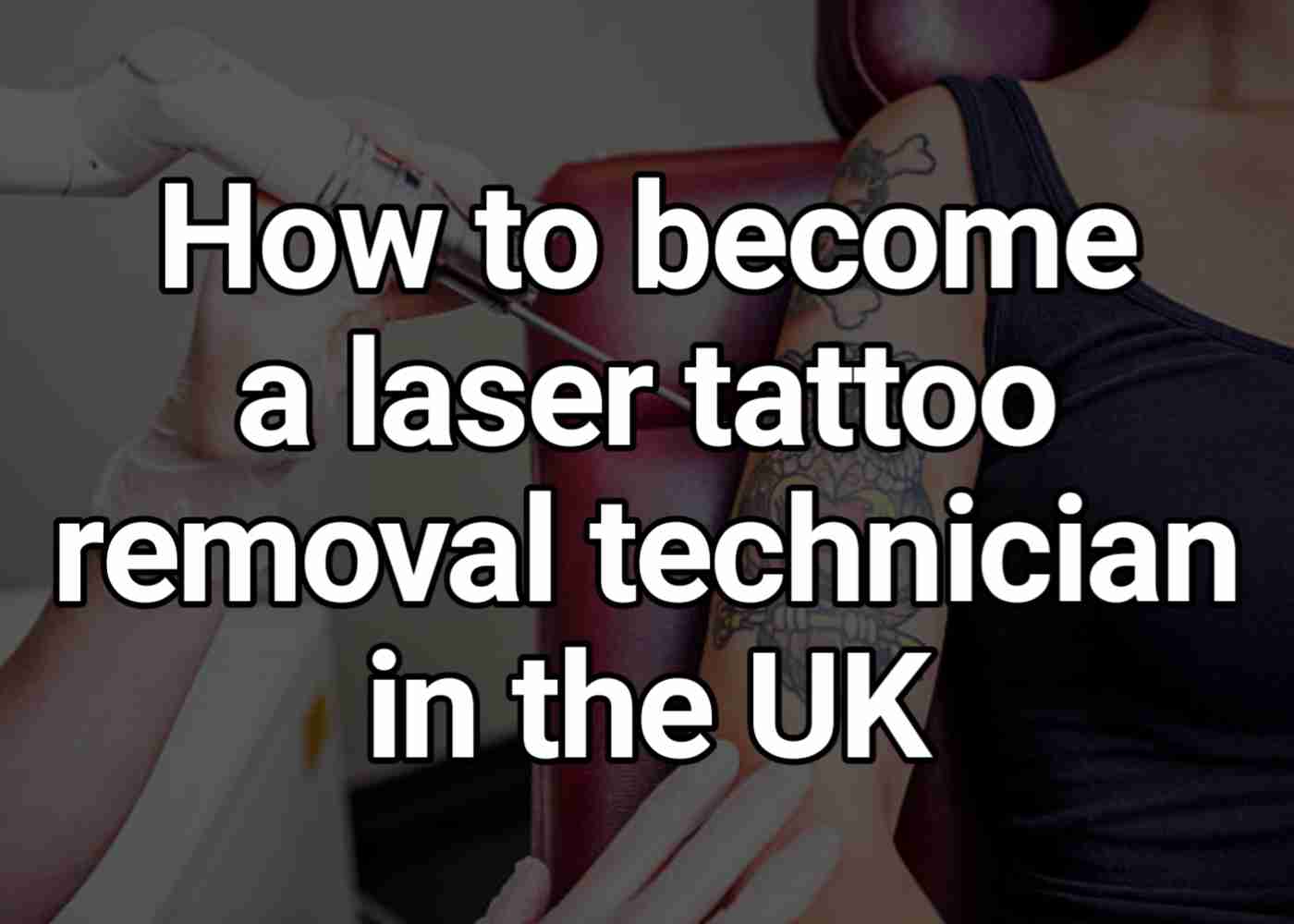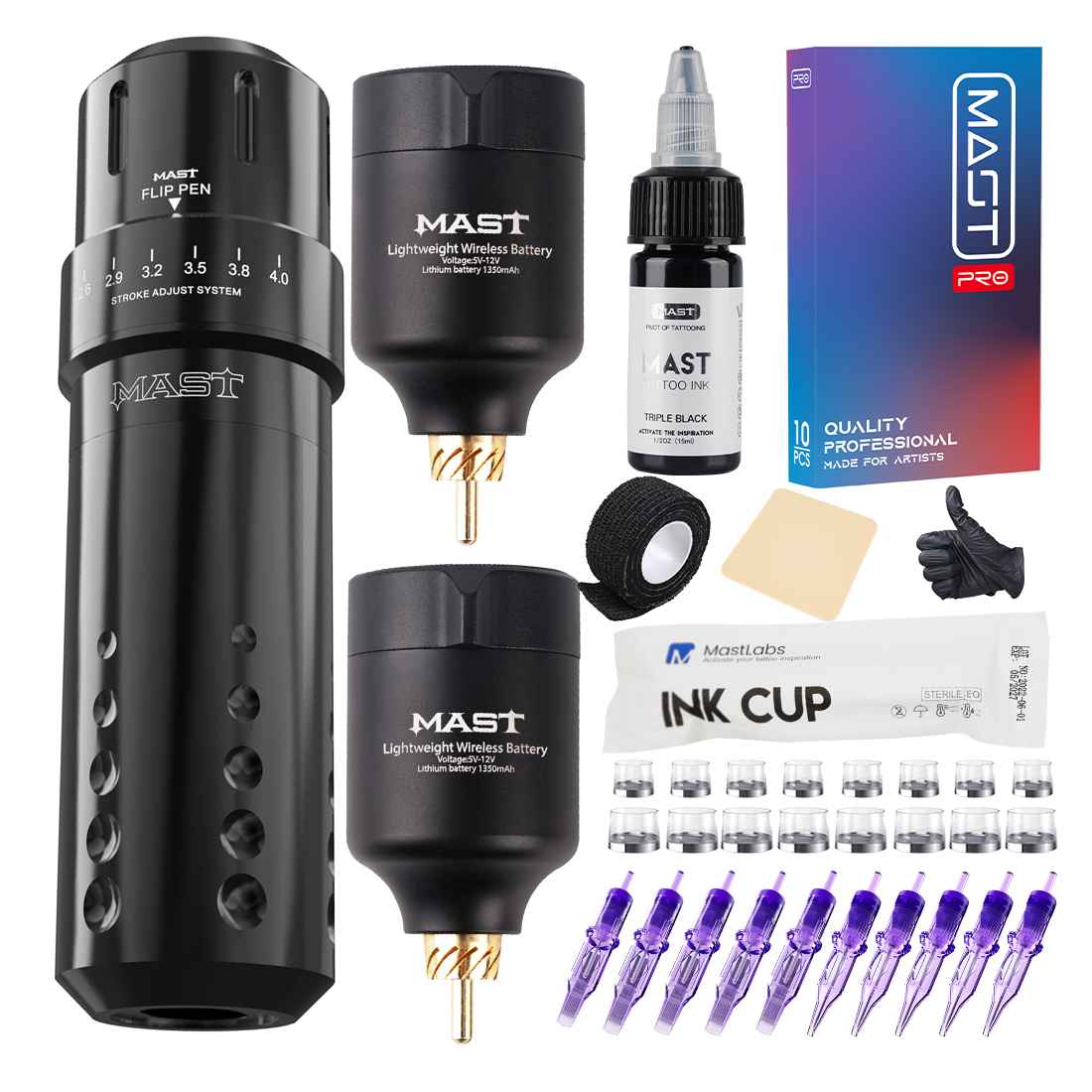Laser tattoo removal is a growing field in the UK, with the number of tattoo removal treatments increasing by 32% from 2017 to 2018 according to the British Association of Dermatologists.
This trend is likely to continue as more people seek to remove tattoos that they no longer want or regret getting.
If you are interested in becoming a laser tattoo removal technician in the UK, there are a few things you need to know.
And in this post, I will reveal to you how to become a laser tattoo removal technician in the UK.
Qualifications:
What qualifications do I need to do laser tattoo removal in the UK?
There are no specific qualifications required to become a laser tattoo removal technician in the UK.
However, it is recommended that you have some medical or healthcare training, such as a nursing or medical assisting qualification.
This will give you a better understanding of the anatomy and physiology of the skin, as well as the potential risks and complications of laser tattoo removal.
Education: What Education is required to become a laser tattoo removal technician in the UK?
In order to become a laser tattoo removal technician, you will need to undergo specific training and education.
This can be provided by laser equipment manufacturers, professional bodies, or private training providers.
The training will cover topics such as laser physics, skin anatomy, laser safety, and the proper use of laser equipment.
You will also need to complete a certain number of supervised treatments before you can work independently.
License:
Do you need a license to do tattoo removal in the UK?
There is no specific licensing requirement for laser tattoo removal technicians in the UK.
However, you will need to register with the Health and Care Professions Council (HCPC)if you want to use the title “paramedic” or “medical professional.”
This is a regulatory body that ensures that practitioners meet certain standards of education, training, and conduct.
Opportunities: What are the job opportunities for a laser tattoo removal technician in the UK?
There are a variety of opportunities for laser tattoo removal technicians in the UK.
You could work in a tattoo removal clinic, a dermatologist’s office, a plastic surgery clinic, or even a spa or salon.
You could also work freelance, offering mobile tattoo removal services to clients in their own homes.
Salary:
How much do laser techs make UK?
The salary of a laser tattoo removal technician in the UK can vary widely depending on factors such as your level of experience, the location of your job, and the type of facility you work in.
According to data from the National Careers Service, the median annual salary for a laser tattoo removal technician is £24,000.
However, this can range from £16,000 to £40,000 or more.
Also read: How to become a laser tattoo removal technician in Australia
Cost: What is the cost of a laser tattoo removal in the UK?
The cost of laser tattoo removal in the UK can vary depending on factors such as the size, location, and color of the tattoo, as well as the number of sessions required.
Prices can range from £50 to £1,000 or more per session. It is important to note that laser tattoo removal is not usually available on the National Health Service (NHS), so you will need to pay for it privately.
Profitability: Is a laser tattoo removal business profitable in the UK?
Laser tattoo removal can be a profitable business, especially if you are able to offer competitive prices and high-quality services.
It is important to do your research and understand the costs of running a laser tattoo removal business, including the cost of equipment, training, and insurance.
You should also be aware of any local competition and consider what sets your business apart.
Advantages: What are the advantages of becoming a laser tattoo removal technician in the UK?
There are several advantages to becoming a laser tattoo removal technician in the UK.
:- One of the main advantages is the opportunity to help people remove tattoos that they no longer want or that have become a source of regret.
:- You can also enjoy the satisfaction of seeing the results of your work, as tattoos typically fade significantly after laser treatment.
:- Additionally, laser tattoo removal is a growing field with good job prospects.
Also read: How to become a laser tattoo removal technician in California
Disadvantages and challenges of being a laser tattoo removal technician in the UK
Some of the disadvantages and challenges of working as a laser tattoo removal technician may include:
:’ Physical demands: The procedure can be physically demanding, as it requires standing for long periods of time and operating laser equipment.
:- Emotional demands: The procedure can also be emotionally demanding, as it involves working with clients who may be anxious or upset about their tattoos.
:’ Risk of injury: There is a risk of injury when working with lasers, including burns, scarring, and changes in skin pigmentation.
Tips to overcoming the challenges
To overcome these challenges, it is important to:
:- Stay up to date on safety protocols and best practices in laser tattoo removal.
:- Take breaks and practice good self-care to prevent fatigue and injury.
:- Seek support from colleagues and mentors if you are struggling emotionally with the demands of the job.
Benefits
Some of the benefits of working as a laser tattoo removal technician may include:
:- Flexibility: Many tattoo removal technicians are self-employed or work on a contract basis, which allows for a flexible schedule.
:- Personal satisfaction: Helping clients achieve their goals of removing unwanted tattoos can be personally fulfilling.
:- Career advancement: With experience, you may have the opportunity to advance to a supervisory or managerial position, or to open your own laser tattoo removal business.
Also read: How to become a laser tattoo removal technician in Florida
Future prospects: What does the future look like for a laser tattoo removal technician in the UK?
According to the International Society of Aesthetic Plastic Surgery, the number of laser tattoo removal procedures performed worldwide increased by over 45% between 2010 and 2018.
The future prospects for laser tattoo removal technicians are generally positive, as the demand for tattoo removal services is expected to continue to grow.
Do you need training for laser tattoo removal UK?
Yes, training is required to become a laser tattoo removal technician in the UK.
This can be provided by laser equipment manufacturers, professional bodies, or private training providers.
The training will cover topics such as laser physics, skin anatomy, laser safety, and the proper use of laser equipment.
You will also need to complete a certain number of supervised treatments before you can work independently.
It is important to note that there is no specific licensing requirement for laser tattoo removal technicians in the UK, but you may need to register with the Health and Care Professions Council if you want to use the title “paramedic” or “medical professional.”
Do you have to be qualified to do laser tattoo removal UK?
In the United Kingdom, laser tattoo removal is considered a medical procedure, and it is generally recommended that it be performed by a qualified healthcare professional, such as a doctor or nurse.
In order to perform laser tattoo removal, the healthcare professional will typically need to have received specialized training in the use of lasers for medical procedures.
It is important to note that laser tattoo removal can be a complex and potentially risky procedure, and it is essential that it be performed by a qualified and experienced professional in order to minimize the risk of complications.
If you are considering laser tattoo removal, it is important to choose a qualified and reputable healthcare professional to ensure that the procedure is performed safely and effectively.
Also read: How to become a laser tattoo removal technician in Texas
How much is a laser tattoo removal machine UK?
The cost of a laser tattoo removal machine in the UK can vary widely, depending on the type and size of the machine, as well as the brand and any additional features it may have.
On average, you can expect to pay anywhere from around £30,000 to over £100,000 for a laser tattoo removal machine in the UK.
It’s important to keep in mind that purchasing a laser tattoo removal machine is a significant investment, and it’s important to do your research and carefully consider your needs and budget before making a decision.
In addition to the upfront cost of the machine, you will also need to factor in ongoing maintenance and repair costs, as well as training and certification for the operator of the machine.
Also read: Do tattoos keep fading after laser?
Do any at home tattoo removals work?
Tattoo removal can be a difficult and time-consuming process, and it is generally best to seek treatment from a trained professional at a dermatology clinic or tattoo removal specialist.
At-home tattoo removal products are generally not as effective as professional treatments and may not be safe to use.
Professional tattoo removal treatments typically use lasers to break up the ink particles in the tattoo, which are then naturally removed by the body’s immune system.
The number of treatments required depends on the size and color of the tattoo, as well as the type of ink used.
There are a variety of at-home tattoo removal products available, including creams, gels, and other topical treatments.
However, these products are generally not as effective as professional treatments and may not be safe to use.
Some of these products can cause irritation or allergic reactions, and they may not be able to fully remove the tattoo.
That said, if you are considering removing a tattoo, it is important to talk to a dermatologist or other medical professional to determine the best course of treatment for your specific situation.
They can recommend the most effective and safe options for tattoo removal.
What is the difference between a PMU machine and tattoo machine?
A PMU machine, also known as a permanent makeup machine or a micropigmentation machine, is a device that is used to apply permanent makeup, also known as micropigmentation or cosmetic tattooing.
It is typically used to apply pigment to the skin in a way that resembles makeup, such as eyeliner, eyebrows, and lip color.
The pigment is inserted into the upper layer of the skin using a small, handheld device that looks similar to a pen.
A tattoo machine, on the other hand, is a device that is used to apply traditional tattoos.
It consists of a small, handheld machine that uses a needle to inject ink into the skin.
The needle moves up and down rapidly, piercing the skin and depositing ink as it goes.
Tattoo machines are used to create a wide range of designs and patterns on the skin, from simple lines and dots to more complex, detailed images.
In summary, the main difference between a PMU machine and a tattoo machine is the type of pigment they use and the purpose for which they are used.
PMU machines are used to apply permanent makeup, while tattoo machines are used to apply traditional tattoos.
Is tattoo removal FDA approved?
Yes, tattoo removal is generally considered to be safe and effective when performed by a trained and licensed professional using FDA-approved equipment and techniques.
The FDA has approved certain lasers for use in tattoo removal, including the Q-switched laser and the picosecond laser.
These lasers work by breaking down the ink particles in the tattoo into smaller fragments, which can then be naturally eliminated by the body’s immune system.
Also read: Can laser tattoo removal fail?
Conclusion
In this post, I showed you how to become a laser tattoo removal technician in the UK.
I have outlined the steps and here’s a quick summary.
Becoming a laser tattoo removal technician in the UK requires completing a training program, passing a certification exam, and staying up to date on safety protocols and best practices.
The job can be physically and emotionally demanding, but also offers the benefits of flexibility, personal satisfaction, and potential for career advancement.
The future prospects for laser tattoo removal technicians are generally positive, as the demand for tattoo removal services is expected to continue to grow.






